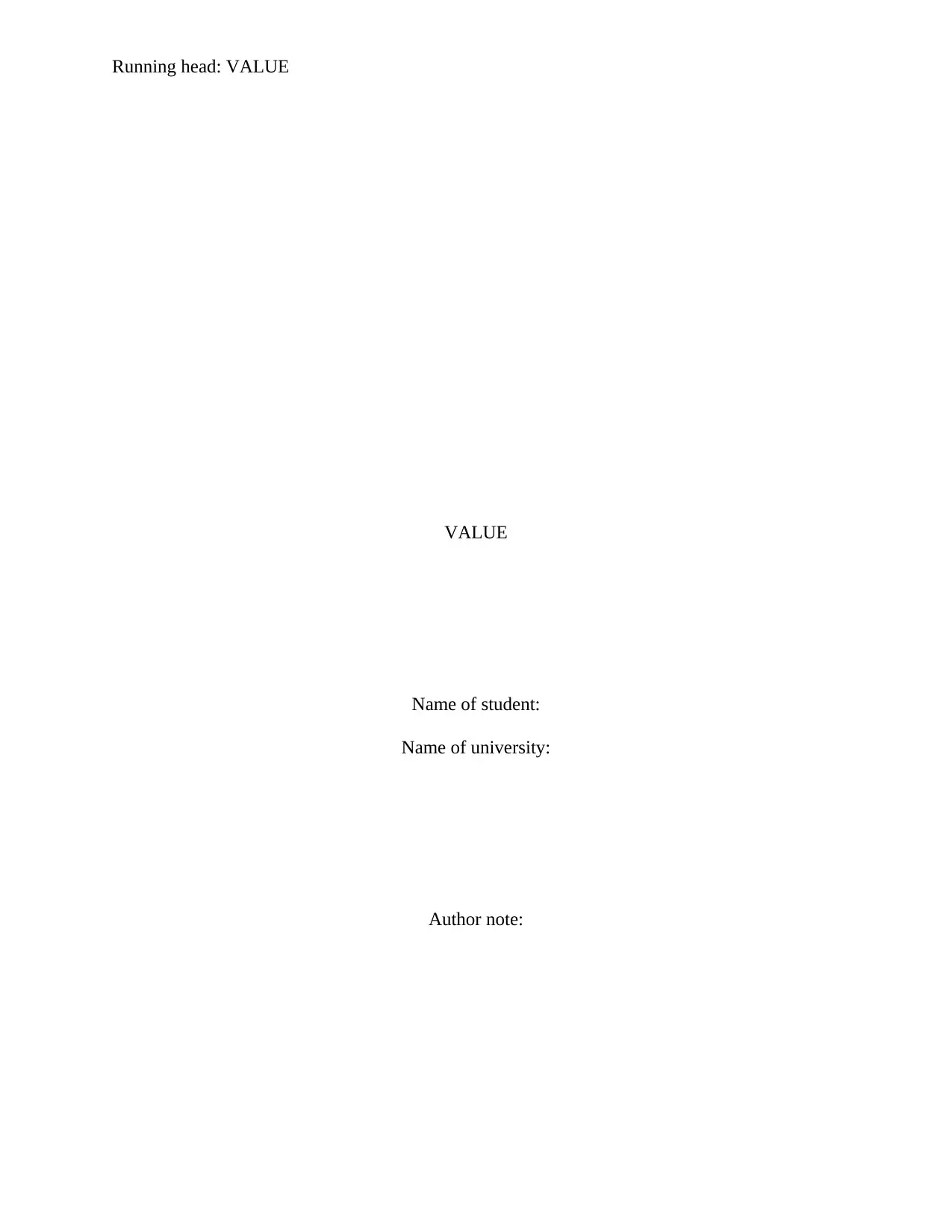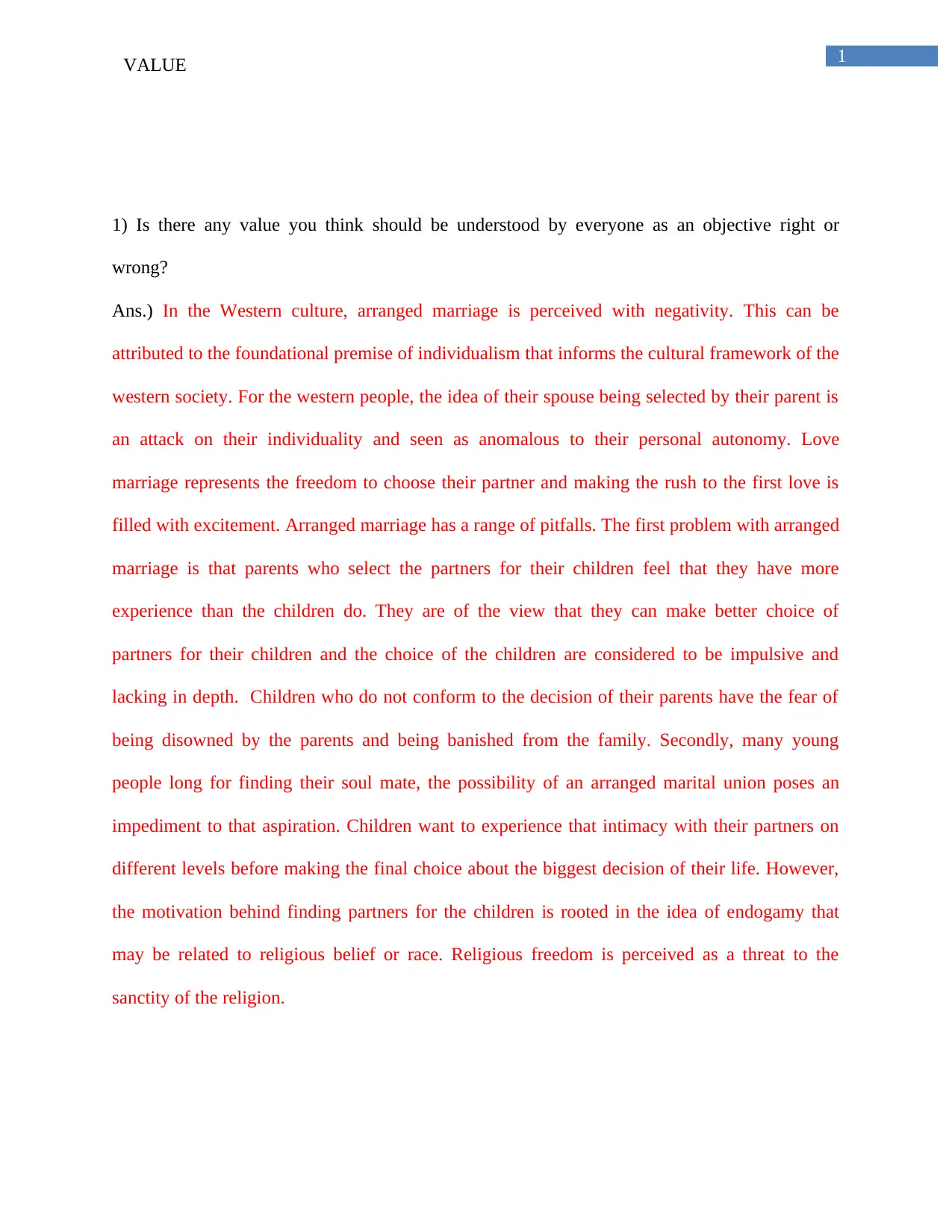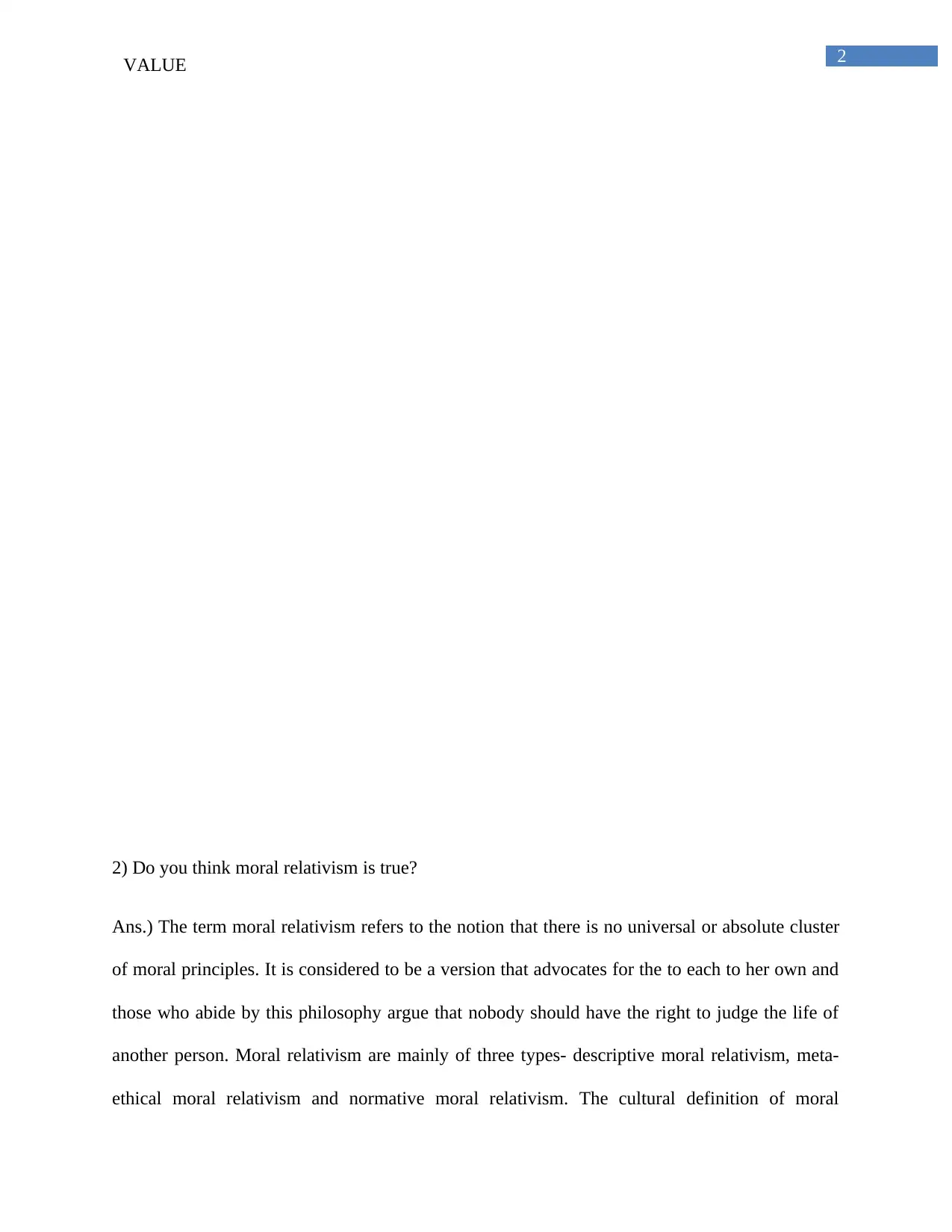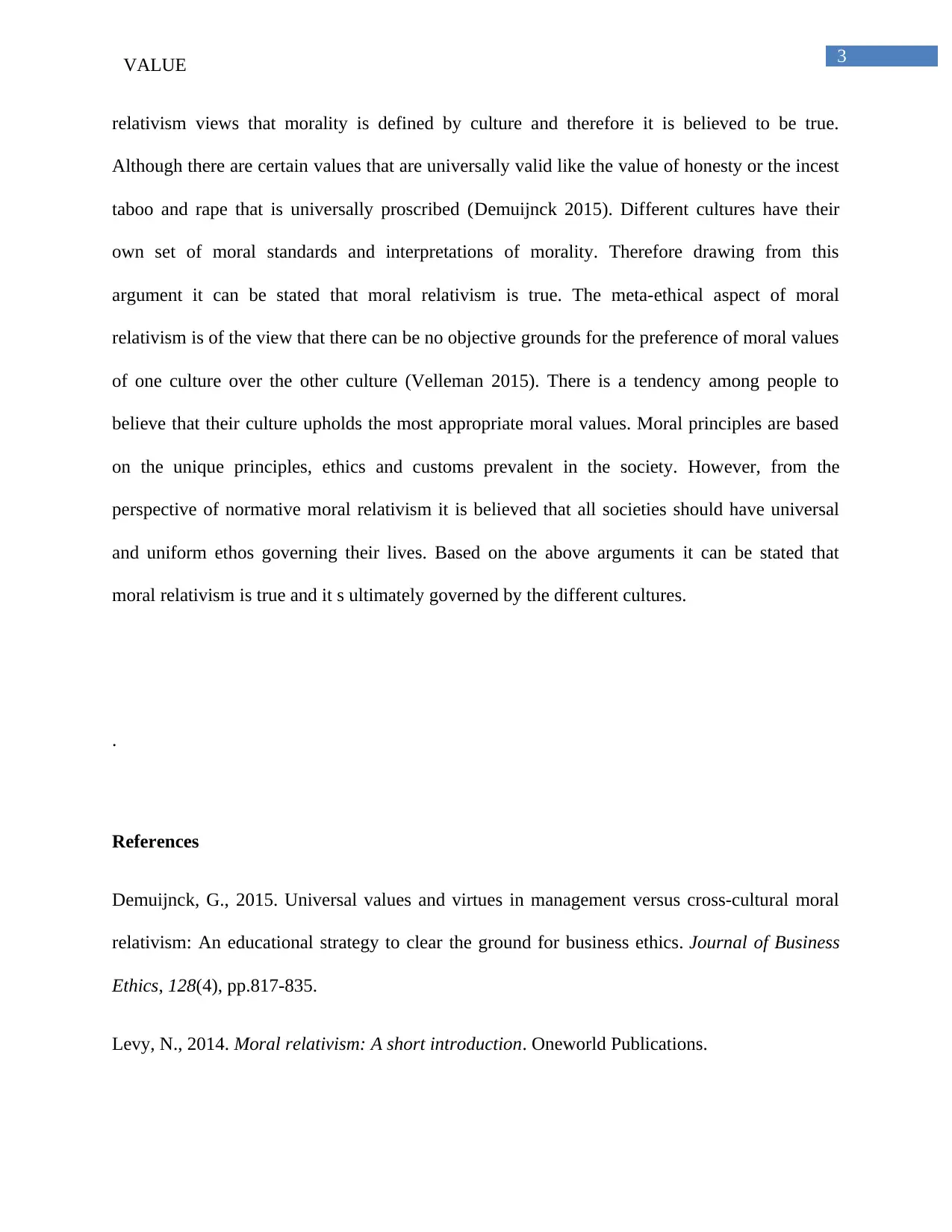A Philosophical Analysis: Objective Values and Moral Relativism
VerifiedAdded on 2023/06/11
|5
|683
|425
Essay
AI Summary
This essay delves into the complex philosophical debate surrounding objective values and moral relativism. It begins by examining whether certain values should be universally considered right or wrong, using the example of arranged marriages and contrasting Western individualistic perspectives with cultural traditions. The essay then explores moral relativism, defining it as the absence of universal moral principles and discussing descriptive, metaethical, and normative relativism. It acknowledges the cultural definition of moral relativism, recognizing that different cultures have unique moral standards while also noting universally valid values. The meta-ethical perspective is considered, highlighting the belief that there are no objective grounds for preferring one culture's moral values over another's. Finally, the essay touches upon normative moral relativism, which posits that all societies should have uniform ethos. The essay concludes that moral relativism is true, influenced by diverse cultural contexts. Desklib offers a range of similar essays and study tools to aid students in their academic pursuits.
1 out of 5










![[object Object]](/_next/static/media/star-bottom.7253800d.svg)